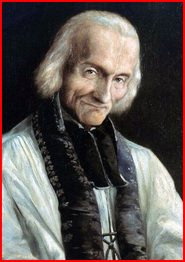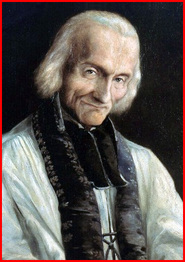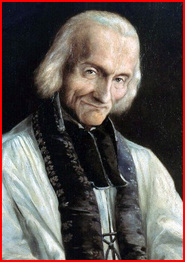| Devotion to Our Lady |
|
- Homepage
-
Daily Thoughts
- 2023 October Daily Thoughts
- Daily Thoughts Lent 2020
- Daily Thoughts for Advent 2019
- Daily Thoughts for October 2019
- Daily Thoughts for September 2019
- Daily Thoughts for August 2019
- Daily Thoughts for July
- Daily Thoughts for June
- Daily Thoughts for Easter 2019
- Daily Thoughts for Lent 2019
- Daily Thoughts for Christmas
- Daily Thoughts Easter 2022
- Sacred Heart
- Consecration
-
Spiritual Life
- Holy Mass Explained
- First Friday Devotions
- First Saturday Devotions
- The Mercy of God
- Vocations
- The Path Everyone Must Walk >
- Gift of Failure
- Halloween or Hell-O-Ween?
- Ignatian Spiritual Exercises >
- Meditation is Soul-Saving
- Spiritual Communion
- Miraculous Medal
- Enrollment in Miraculous Medal
- St. Benedict Medal
- Holy Water
- Advice on Prayer
- Your Daily Mary
-
Prayers
- September Devotions
- Seven Sorrows of Our Lady
-
Novenas
>
- NV-Help of Christians
- NV-Nativity of Our Lady
- NV-Seven Sorrows
- NV- Sorrowful Heart
- NV-Pope St Pius X
- NV-La Salette
- NV-St Michael Archangel
- NV-Immaculate Heart
- NV-Assumption
- NV-Novena for Fathers
- NV-Novena for Your Mother
- NV-St Raphael Archangel
- NV-Souls in Purgatory
- NV-All Saints Day
- NV-Christ the King
- NV-Divine Motherhood
- NV-Guardian Angels
- NV-Rosary
- NV-Mirac Med
- NV- Imm Conc
- NV - Guadalupe
- NV - Nativity of Jesus
- NV-Epiphany
- NV-OL Good Success
- NV-Lourdes
- NV-St Patrick
- NV-St Joseph
- NV-Annunciation
- NV-St Louis de Montfort
- NV-OL Good Counsel
- NV-Last Supper
- NV-Passion
- NV-Pentecost
- NV-Ascension
- NV-Sacred Heart
- NV-Sacred Heart & Perpetual Help
- NV-Corpus Christi
- NV-OL of Perpetual Help
- NV-Queenship BVM
- NV-OL of Mount Carmel
- NV-St Mary Magdalen
- NV- Im Hrt
- August Devotions to IHM
- Immaculate Heart of Mary
- Litany of Dependence
- Prayers to St Mary Magdalen
- Prayers in Times of Sickness Disease & Danger
- Holy Souls in Purgatory
- Meditations on the Litany of Our Lady
- Special Feast Days
- Prayers to Mary (Mon-Sun)
- Litanies to Our Lady >
- Various & Special Needs
- Our Lady of the Rosary
- Our Lady of Mt. Carmel
- Our Lady of Perpetual Help
- Our Lady of Guadalupe
- Other titles of Our Lady
-
Rosary
- Downloads
- Easter Season
-
Holy Week
- Last Seven Words of Jesus >
- Characters of Passion >
- The Last Days of Christ
- Before Palm Sunday
- Palm Sunday
- Monday in Holy Week
- Tuesday in Holy Week
- Wednesday in Holy Week
- Holy Thursday (Last Supper)
- Holy Thursday (Agony & Arrest)
- Night Vigil with Christ
- Good Friday (Pilate & Herod)
- Good Friday (Way of Cross & Crucifixion)
- Saturday in Holy Week
-
Lent
- Ideas for Lent
- Daily Lenten Planner
- Daily Lenten Liturgy
- From Cold to Hot
- Lent with Aquinas
- Lent with Dom Gueranger
- Virtues for Lent
- History of Penance
- How Expensive is Sin?
- Confession of Sins
- Letter to Friends of the Cross
- Sermons for Lent
- Stations of the Cross >
- Lenten Prayers
- 7 Penitential Psalms
- Lenten Psalms SUN
- Lenten Psalms MON
- Lenten Psalms TUE
- Lenten Psalms WED
- Lenten Psalms THU
- Lenten Psalms FRI
- Lenten Psalms SAT
- Lenten Laughs
- Septuagesima
-
Christmas
- Epiphany Explained
- Suggestions for Christmas
- Food For Thought
- Christmas with Aquinas
- Christmas with Dom Gueranger
- Christmas Prayers
- Candles & Candlemas
- Christmas Sermons
- Christmas Prayers SUN
- Christmas Prayers MON
- Christmas Prayers TUE
- Christmas Prayers WED
- Christmas Prayers THU
- Christmas Prayers FRI
- Christmas Prayers SAT
- Twelve Days of Christmas >
-
Advent Journey
- Purgatory
- Christ the King
- Legion of Mary
- Scapular
-
Saints
-
Martyrs for the Faith
>
- Your Daily Martyr >
- All 365 Days of Martyrs
- Cristeros
- St Valentine & Valentine's Day
- Martyrs--Thomas Becket
- Martyrs--John the Apostle
- Holy Machabees
- Age of Martyrdom
- Carmelites of Compiegne
- Martyrs--Peter & Paul
- Martyrs--John the Baptist
- Martyrs--Andrew
- Martyrs--James the Great
- Martyrs--North American
- Martyrs--Seven Holy Sleepers
- Martyrs--Afra
- School of Martyrdom
- Martyrs--Christina
- Desert Saints >
- Saints for Sinners >
- Saints of Mary >
- History of All Saints Day
-
Martyrs for the Faith
>
- Precious Blood
- Holy Ghost
- Synod 2023
-
Catechism
- Catechism Lesson 1
- Catechism Lesson 2
- Catechism Lesson 3
- Catechism Lesson 4
- Catechism Lesson 5
- Catechism Lesson 6
- Catechism Lesson 7
- Catechism Lesson 8
- Catechism Lesson 9
- Catechism Lesson 10
- Catechism Lesson 11
- Catechism Lesson 12
- Catechism Lesson 13
- Catechism Lesson 14
- Catechism Lesson 15
- Catechism Lesson 16
- Catechism Lesson 17
- Catechism Lesson 18
- Catechism Lesson 19
- Catechism Lesson 20
- Catechism Lesson 21
- Catechism Lesson 22
- Bible Study
-
Calendar
- Miracles
- Apparitions
- Shrines
- Prophecies
- Angels Homepage
- Hell
-
Church Crisis
- Conspiracy Theories
- Amazon Synod 2019 >
- Liberalism & Modernism
- Modernism--Encyclical Pascendi
- Modernism & Children
- Modernism--Documents
- The Francis Pages
- Church Enemies on Francis
- Francis Quotes
- Amoris Laetitia Critique
- Danger of Ignorance (Pius X)
- Restore all In Christ (Pius X)
- Catholic Action (Pius X)
- Another TITANIC Disaster?
- The "Errors of Russia"
- CRISIS PRAYERS
- Election Novena 2024
- The Anger Room
- War Zone
- Life of Mary
- Spiritual Gym
- Stupidity
- Coronavirus and Catholicism
- History & Facts
- Books
- Catholic Family
- Children
- Daily Quiz
-
Novena Church & Pope
- Day 01 Church-Pope Novena
- Day 02 Church-Pope Novena
- Day 03 Church-Pope Novena
- Day 04 Church-Pope Novena
- Day 05 Church-Pope Novena
- Day 06 Church-Pope Novena
- Day 07 Church-Pope Novena
- Day 08 Church-Pope Novena
- Day 09 Church-Pope Novena
- Day 10 Church-Pope Novena
- Day 11 Church-Pope Novena
- Day 12 Church-Pope Novena
- Day 13 Church-Pope Novena
- Day 14 Church-Pope Novena
- Day 15 Church-Pope Novena
- Day 16 Church-Pope Novena
- Day 17 Church-Pope Novena
- Day 18 Church-Pope Novena
- Day 19 Church-Pope Novena
- Day 20 Church-Pope Novena
- Day 21 Church-Pope Novena
- Day 22 Church-Pope Novena
- Day 23 Church-Pope Novena
- Day 24 Church-Pope Novena
- Day 25 Church-Pope Novena
- Day 26 Church-Pope Novena
- Day 27 Church-Pope Novena
- Day 28 Church-Pope Novena
- Day 29 Church-Pope Novena
- Day 30 Church-Pope Novena
- Day 31 Church-Pope Novena
- Day 32 Church-Pope Novena
- Day 33 Church-Pope Novena
- Day 34 Church-Pope Novena
- Day 35 Church-Pope Novena
- Day 36 Church-Pope Novena
- Day 37 Church-Pope Novena
- Day 38 Church-Pope Novena
- Day 39 Church-Pope Novena
- Day 40 Church-Pope Novena
- Day 41 Church-Pope Novena
- Day 42 Church-Pope Novena
- Day 43 Church-Pope Novena
- Day 44 Church-Pope Novena
- Day 45 Church-Pope Novena
- Day 46 Church-Pope Novena
- Day 47 Church-Pope Novena
- Day 48 Church-Pope Novena
- Day 49 Church-Pope Novena
- Day 50 Church-Pope Novena
- Day 51 Church-Pope Novena
- Day 52 Church-Pope Novena
- Day 53 Church-Pope Novena
- Day 54 Church-Pope Novena
- Penance Novena
- Daily WeAtheR Forecast
The Greatest and Most Important Time in the Church's Liturgical Year
CLICK ON ANY LINK BELOW
Also lots of LENTEN & HOLY WEEK DOWNLOADS on the downloads page (click here)
LENTEN PAGES
| ASH WEDNESDAY COUNTDOWN | LENT (MAIN PAGE) | DAILY THOUGHTS | DAILY LENTEN LITURGY | DAILY LENTEN PLANNER |
| LENTEN PRAYERS | THE 7 PENITENTIAL PSALMS | IDEAS FOR PENANCE | LENT WITH AQUINAS | LENT WITH DOM GUERANGER |
| HISTORY OF PENANCE | PENANCES OF THE SAINTS | HOW EXPENSIVE IS SIN? | CONFESSION OF SINS | ARE FEW SOULS SAVED? |
| VIRTUES FOR LENT | FROM COLD TO HOT | LENTEN LAUGHS | SERMONS FOR LENT | LETTER TO FRIENDS OF THE CROSS |
| STATIONS OF THE CROSS (INDIVIDUALLY) | ALL 14 STATIONS OF THE CROSS | LITANIES FOR PASSIONTIDE |
| THE LAST DAYS OF CHRIST | SPECIAL HOLY WEEK PAGES |
LITURGICAL PRAYERS FOR EACH DAY OF THE WEEK DURING LENT
| Sundays of Lent | Mondays of Lent | Tuesdays of Lent | Wednesdays of Lent | Thursdays of Lent | Fridays of Lent | Saturdays of Lent |
HOLY WEEK PAGES
| Holy Week Main Page | Before Palm Sunday | Palm Sunday | The Last Days of Christ | Holy Thursday Last Supper Novena | Good Friday Passion Novena |
| Monday of Holy Week | Tuesday of Holy Week | Wednesday of Holy Week | Holy Thursday (Last Supper) | Holy Thursday (Agony & Arrest) |
| Night Vigil With Christ | Good Friday (Pilate & Herod) | Good Friday (Way of Cross & Crucifixion) | Holy Saturday |
THE CHIEF CHARACTERS OF THE PASSION
| Characters of the Passion Mainpage | The Sanhedrin | Pharisees | Scribes | Saducees | Jewish Crowd | Roman Rulers |
| Judas | Annas & Caiphas | Pontius Pilate | Herod | Barabbas | Dismas the Good Thief | St. Peter | St. John | Mary Magdalen |
THE FOURTEEN STATIONS OF THE CROSS
| Introduction to the Stations of the Cross | Short Version of the Stations of the Cross (all 14 on one page) | 1st Station | 2nd Station | 3rd Station |
| 4th Station | 5th Station | 6th Station | 7th Station | 8th Station | 9th Station | 10th Station | 11th Station | 12th Station | 13th Station | 14th Station |
THE LAST SEVEN WORDS OF JESUS FROM THE CROSS
| Seven Last Words on the Cross (Introduction) | The 1st Word on the Cross | The 2nd Word on the Cross | The 3rd Word on the Cross |
| The 4th Word on the Cross | The 5th Word on the Cross | The 6th Word on the Cross | The 7th Word on the Cross |
PRAYERS AND DEVOTIONS TO THE SEVEN SORROWS OF OUR LADY
| Seven Sorrows Meditations | Short Prayers & Short Seven Sorrows Rosary | Longer Seven Sorrows Rosary |
| 1st Sorrow of Our Lady | 2nd Sorrow of Our Lady | 3rd Sorrow of Our Lady | 4th Sorrow of Our Lady |
| 5th Sorrow of Our Lady | 6th Sorrow of Our Lady | 7th Sorrow of Our Lady |
| Novena #1 to the Sorrowful Heart of Mary | Novena #2 to the Sorrowful Heart of Mary |
CLICK ON ANY LINK BELOW
Also lots of LENTEN & HOLY WEEK DOWNLOADS on the downloads page (click here)
LENTEN PAGES
| ASH WEDNESDAY COUNTDOWN | LENT (MAIN PAGE) | DAILY THOUGHTS | DAILY LENTEN LITURGY | DAILY LENTEN PLANNER |
| LENTEN PRAYERS | THE 7 PENITENTIAL PSALMS | IDEAS FOR PENANCE | LENT WITH AQUINAS | LENT WITH DOM GUERANGER |
| HISTORY OF PENANCE | PENANCES OF THE SAINTS | HOW EXPENSIVE IS SIN? | CONFESSION OF SINS | ARE FEW SOULS SAVED? |
| VIRTUES FOR LENT | FROM COLD TO HOT | LENTEN LAUGHS | SERMONS FOR LENT | LETTER TO FRIENDS OF THE CROSS |
| STATIONS OF THE CROSS (INDIVIDUALLY) | ALL 14 STATIONS OF THE CROSS | LITANIES FOR PASSIONTIDE |
| THE LAST DAYS OF CHRIST | SPECIAL HOLY WEEK PAGES |
LITURGICAL PRAYERS FOR EACH DAY OF THE WEEK DURING LENT
| Sundays of Lent | Mondays of Lent | Tuesdays of Lent | Wednesdays of Lent | Thursdays of Lent | Fridays of Lent | Saturdays of Lent |
HOLY WEEK PAGES
| Holy Week Main Page | Before Palm Sunday | Palm Sunday | The Last Days of Christ | Holy Thursday Last Supper Novena | Good Friday Passion Novena |
| Monday of Holy Week | Tuesday of Holy Week | Wednesday of Holy Week | Holy Thursday (Last Supper) | Holy Thursday (Agony & Arrest) |
| Night Vigil With Christ | Good Friday (Pilate & Herod) | Good Friday (Way of Cross & Crucifixion) | Holy Saturday |
THE CHIEF CHARACTERS OF THE PASSION
| Characters of the Passion Mainpage | The Sanhedrin | Pharisees | Scribes | Saducees | Jewish Crowd | Roman Rulers |
| Judas | Annas & Caiphas | Pontius Pilate | Herod | Barabbas | Dismas the Good Thief | St. Peter | St. John | Mary Magdalen |
THE FOURTEEN STATIONS OF THE CROSS
| Introduction to the Stations of the Cross | Short Version of the Stations of the Cross (all 14 on one page) | 1st Station | 2nd Station | 3rd Station |
| 4th Station | 5th Station | 6th Station | 7th Station | 8th Station | 9th Station | 10th Station | 11th Station | 12th Station | 13th Station | 14th Station |
THE LAST SEVEN WORDS OF JESUS FROM THE CROSS
| Seven Last Words on the Cross (Introduction) | The 1st Word on the Cross | The 2nd Word on the Cross | The 3rd Word on the Cross |
| The 4th Word on the Cross | The 5th Word on the Cross | The 6th Word on the Cross | The 7th Word on the Cross |
PRAYERS AND DEVOTIONS TO THE SEVEN SORROWS OF OUR LADY
| Seven Sorrows Meditations | Short Prayers & Short Seven Sorrows Rosary | Longer Seven Sorrows Rosary |
| 1st Sorrow of Our Lady | 2nd Sorrow of Our Lady | 3rd Sorrow of Our Lady | 4th Sorrow of Our Lady |
| 5th Sorrow of Our Lady | 6th Sorrow of Our Lady | 7th Sorrow of Our Lady |
| Novena #1 to the Sorrowful Heart of Mary | Novena #2 to the Sorrowful Heart of Mary |
Throughout the Season of Lent, we will post various sermons by the Saints, the Blessed, the Venerable or just popes, bishops and priests. These will cover all the serious subjects that are related to the spirit of Lent and our salvation. May they bring you much inspiration and grace, while helping you spend the season in a truly profitable and fruitful manner.
CONTENTS
|
1. St. Alphonsus Liguori THE COMPASSION OF JESUS FOR SINNERS
2. St. Alphonsus Liguori THE DANGERS OF TEPIDITY 3. St. Alphonsus Liguori THE UNHAPPINESS OF SINNERS 4. St. Alphonsus Liguori THE DELUSION OF SINNERS 5. St. Alphonsus Liguori THOUGHTS ABOUT HEAVEN 6. St. Alphonsus Liguori CONCEALING SINS IN CONFESSION 7. St. Alphonsus Liguori THE MALICE OF MORTAL SIN 8. St. Alphonsus Liguori LIMITED NUMBER OF SINS GOD WILL PARDON 9. St. John Vianney THEY ARE FOR THE WORLD 10. St. John Vianney A PUBLIC PLAGUE 11. St. John Vianney EVIL TONGUES 12. St. Alphonsus Liguori THE IMPORTANCE OF SALVATION 13. St. Alphonsus Liguori CONFIDENCE IN COMMENDING SELF TO MARY 14. St. Alphonsus Liguori DANGERS TO SALVATION 15. St. Alphonsus Liguori ON THE EVIL EFFECTS OF BAD HABITS 16. St. Alphonsus Liguori ON THE MEANS NECESSARY FOR SALVATION 17. St. Alphonsus Liguori MISERABLE STATE OF RELAPSING SINNERS |
18. St. Alphonsus Liguori ON THE VALUE OF TIME
19. St. Alphonsus Liguori ON THE MERCY OF GOD TOWARDS SINNERS 20. St. Alphonsus Liguori THE ANGUISH AT DEATH OF NEGLIGENT CHRISTIANS 21. St. Alphonsus Liguori ON THE GENERAL JUDGMENT 22. St. Alphonsus Liguori ON THE PARTICULAR JUDGMENT 23. St. Alphonsus Liguori ON THE DEATH OF THE JUST PERSON 24. St. Alphonsus Liguori ON THE PAINS OF HELL 25. St. Alphonsus Liguori ON THE REMORSE OF THE DAMNED 26. St. Alphonsus Liguori DEATH IS CERTAIN AND UNCERTAIN 27 St. Alphonsus Liguori ON THE DEATH OF THE SINNER 28 St. Alphonsus Liguori ON THE ETERNITY OF HELL 29. St. Alphonsus Liguori ALL ENDS! AND SOON ENDS! 30. St. Alphonsus Liguori ON IMPENITENCE 31 St. Alphonsus Liguori ON THE PAIN OF LOSS SUFFERED IN HELL 32. Pope St Leo the Great ON THE PASSION OF CHRIST 33. St. Alphonsus Liguori OUR SALVATION IS IN THE CROSS |
SERMON 1
St. Alphonsus Liguori
ON THE COMPASSION OF JESUS FOR SINNERS
“Make the men sit down” (John 6:10).
St. Alphonsus Liguori
ON THE COMPASSION OF JESUS FOR SINNERS
“Make the men sit down” (John 6:10).
SERMON 2
St. Alphonsus Liguori
ON THE DANGER TO WHICH TEPIDITY EXPOSES THE SOUL
“But Jesus hid himself” (John 8:59).
St. Alphonsus Liguori
ON THE DANGER TO WHICH TEPIDITY EXPOSES THE SOUL
“But Jesus hid himself” (John 8:59).
SERMON 3
St. Alphonsus Liguori
ON THE UNHAPPINESS OF SINNERS AND THE HAPPINESS OF THOSE WHO LOVE GOD
“And that which fell among the thorns, are they, who have heard, and, going their way, are choked with the cares and riches of this life” (Luke 8:14).
St. Alphonsus Liguori
ON THE UNHAPPINESS OF SINNERS AND THE HAPPINESS OF THOSE WHO LOVE GOD
“And that which fell among the thorns, are they, who have heard, and, going their way, are choked with the cares and riches of this life” (Luke 8:14).
SERMON 4
St. Alphonsus Liguori
THE DELUSION OF SINNERS
“Lord, that I may see!” (Luke 18:41).
St. Alphonsus Liguori
THE DELUSION OF SINNERS
“Lord, that I may see!” (Luke 18:41).
SERMON 5
St. Alphonsus Liguori for the Second Sunday of Lent
THOUGHTS ABOUT HEAVEN
“Lord, it is good for us to be here!” (Matthew 17:4).
St. Alphonsus Liguori for the Second Sunday of Lent
THOUGHTS ABOUT HEAVEN
“Lord, it is good for us to be here!” (Matthew 17:4).
SERMON 6
St. Alphonsus Liguori for the Third Sunday of Lent
ON CONCEALING SINS IN CONFESSION
“And he was casting out a devil, and the same was dumb” (Luke 11:14).
St. Alphonsus Liguori for the Third Sunday of Lent
ON CONCEALING SINS IN CONFESSION
“And he was casting out a devil, and the same was dumb” (Luke 11:14).
SERMON 7
St. Alphonsus Liguori
THE MALICE OF MORTAL SIN
“Behold, Thy father and I have sought Thee sorrowing” (Luke 2:48).
St. Alphonsus Liguori
THE MALICE OF MORTAL SIN
“Behold, Thy father and I have sought Thee sorrowing” (Luke 2:48).
SERMON 8
St. Alphonsus Liguori
ON THE NUMBER OF SINS BEYOND WHICH GOD PARDONS NO MORE
“Thou shalt not tempt the Lord they God!” (Matthew 4:41).
St. Alphonsus Liguori
ON THE NUMBER OF SINS BEYOND WHICH GOD PARDONS NO MORE
“Thou shalt not tempt the Lord they God!” (Matthew 4:41).
SERMON 9
St. John Vianney
THEY ARE FOR THE WORLD
“The fool hath said in his heart: 'There is no God!'” (Psalm 13:1).
St. John Vianney
THEY ARE FOR THE WORLD
“The fool hath said in his heart: 'There is no God!'” (Psalm 13:1).
SERMON 10
St. John Vianney
A PUBLIC PLAGUE
St. John Vianney
A PUBLIC PLAGUE
SERMON 11
St. John Vianney
EVIL TONGUES
St. John Vianney
EVIL TONGUES
SERMON 12
St. Alphonsus Liguori
ON THE IMPORTANCE OF SALVATION
St. Alphonsus Liguori
ON THE IMPORTANCE OF SALVATION
SERMON 13
St. Alphonsus Liguori
ON THE CONFIDENCE WE SHOULD HAVE IN RECOMMENDING OURSELVES TO OUR LADY
St. Alphonsus Liguori
ON THE CONFIDENCE WE SHOULD HAVE IN RECOMMENDING OURSELVES TO OUR LADY
SERMON 14
St. Alphonsus Liguori
THE DANGERS TO OUR SALVATION
St. Alphonsus Liguori
THE DANGERS TO OUR SALVATION
SERMON 15
St. Alphonsus Liguori
ON THE EVIL EFFECTS OF BAD HABITS
St. Alphonsus Liguori
ON THE EVIL EFFECTS OF BAD HABITS
SERMON 16
St. Alphonsus Liguori
ON THE MEANS NECESSARY FOR SALVATION
St. Alphonsus Liguori
ON THE MEANS NECESSARY FOR SALVATION
SERMON 17
St. Alphonsus Liguori
ON THE MISERABLE STATE OF RELAPSING SINNERS
St. Alphonsus Liguori
ON THE MISERABLE STATE OF RELAPSING SINNERS
SERMON 18
St. Alphonsus Liguori
ON THE VALUE OF TIME
St. Alphonsus Liguori
ON THE VALUE OF TIME
SERMON 19
St. Alphonsus Liguori
ON THE MERCY OF GOD TOWARDS SINNERS
St. Alphonsus Liguori
ON THE MERCY OF GOD TOWARDS SINNERS
SERMON 20
St. Alphonsus Liguori
ON THE ANGUISH AT DEATH OF NEGLIGENT CHRISTIANS
St. Alphonsus Liguori
ON THE ANGUISH AT DEATH OF NEGLIGENT CHRISTIANS
SERMON 21
St. Alphonsus Liguori
ON THE GENERAL JUDGMENT
St. Alphonsus Liguori
ON THE GENERAL JUDGMENT
SERMON 22
St. Alphonsus Liguori
ON THE PARTICULAR JUDGMENT
St. Alphonsus Liguori
ON THE PARTICULAR JUDGMENT
SERMON 23
St. Alphonsus Liguori
ON THE DEATH OF THE JUST PERSON
St. Alphonsus Liguori
ON THE DEATH OF THE JUST PERSON
SERMON 24
St. Alphonsus Liguori
ON THE PAINS OF HELL
St. Alphonsus Liguori
ON THE PAINS OF HELL
SERMON 25
St. Alphonsus Liguori
ON THE REMORSE OF THE DAMNED
St. Alphonsus Liguori
ON THE REMORSE OF THE DAMNED
SERMON 26
St. Alphonsus Liguori
DEATH IS CERTAIN AND UNCERTAIN
St. Alphonsus Liguori
DEATH IS CERTAIN AND UNCERTAIN
SERMON 27
St. Alphonsus Liguori
ON THE DEATH OF THE SINNER
St. Alphonsus Liguori
ON THE DEATH OF THE SINNER
SERMON 28
St. Alphonsus Liguori
ON THE ETERNITY OF HELL
St. Alphonsus Liguori
ON THE ETERNITY OF HELL
SERMON 29
St. Alphonsus Liguori
ALL ENDS! AND SOON ENDS!
St. Alphonsus Liguori
ALL ENDS! AND SOON ENDS!
SERMON 30
St. Alphonsus Liguori
ON IMPENITENCE
St. Alphonsus Liguori
ON IMPENITENCE
SERMON 31
St. Alphonsus Liguori
ON THE PAIN OF LOSS WHICH THE DAMNED SUFFER IN HELL
St. Alphonsus Liguori
ON THE PAIN OF LOSS WHICH THE DAMNED SUFFER IN HELL
SERMON 32
Pope St. Leo the Great (Leo I)
PALM SUNDAY SERMON ON THE PASSION OF CHRIST
Pope St. Leo the Great (Leo I)
PALM SUNDAY SERMON ON THE PASSION OF CHRIST
SERMON 33
St. Alphonsus Liguori
OUR SALVATION IS IN THE CROSS
“The chalice which My Father hath given Me, shall I not drink it?” (John 18:11).
St. Alphonsus Liguori
OUR SALVATION IS IN THE CROSS
“The chalice which My Father hath given Me, shall I not drink it?” (John 18:11).
Web Hosting by Just Host

































